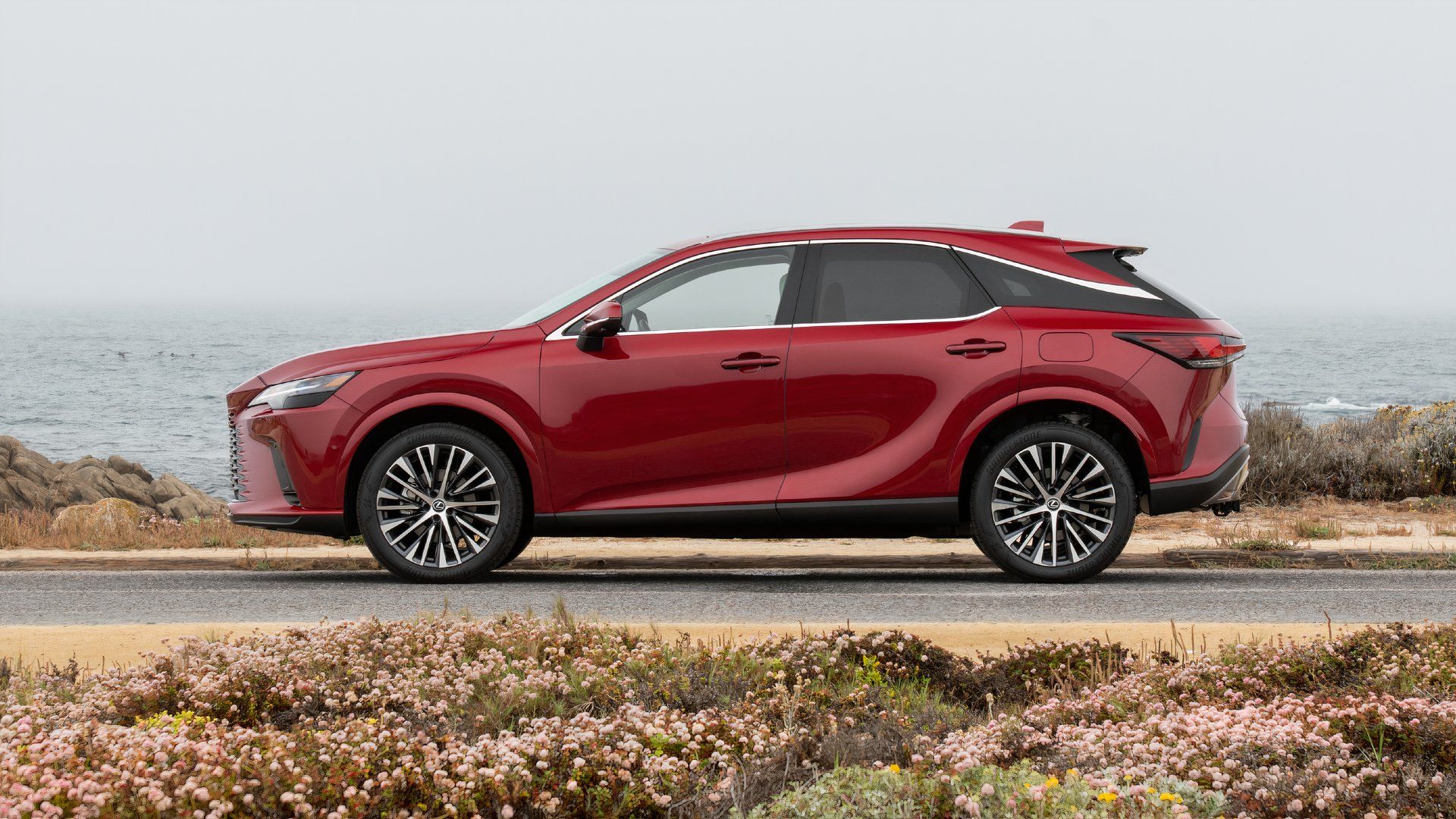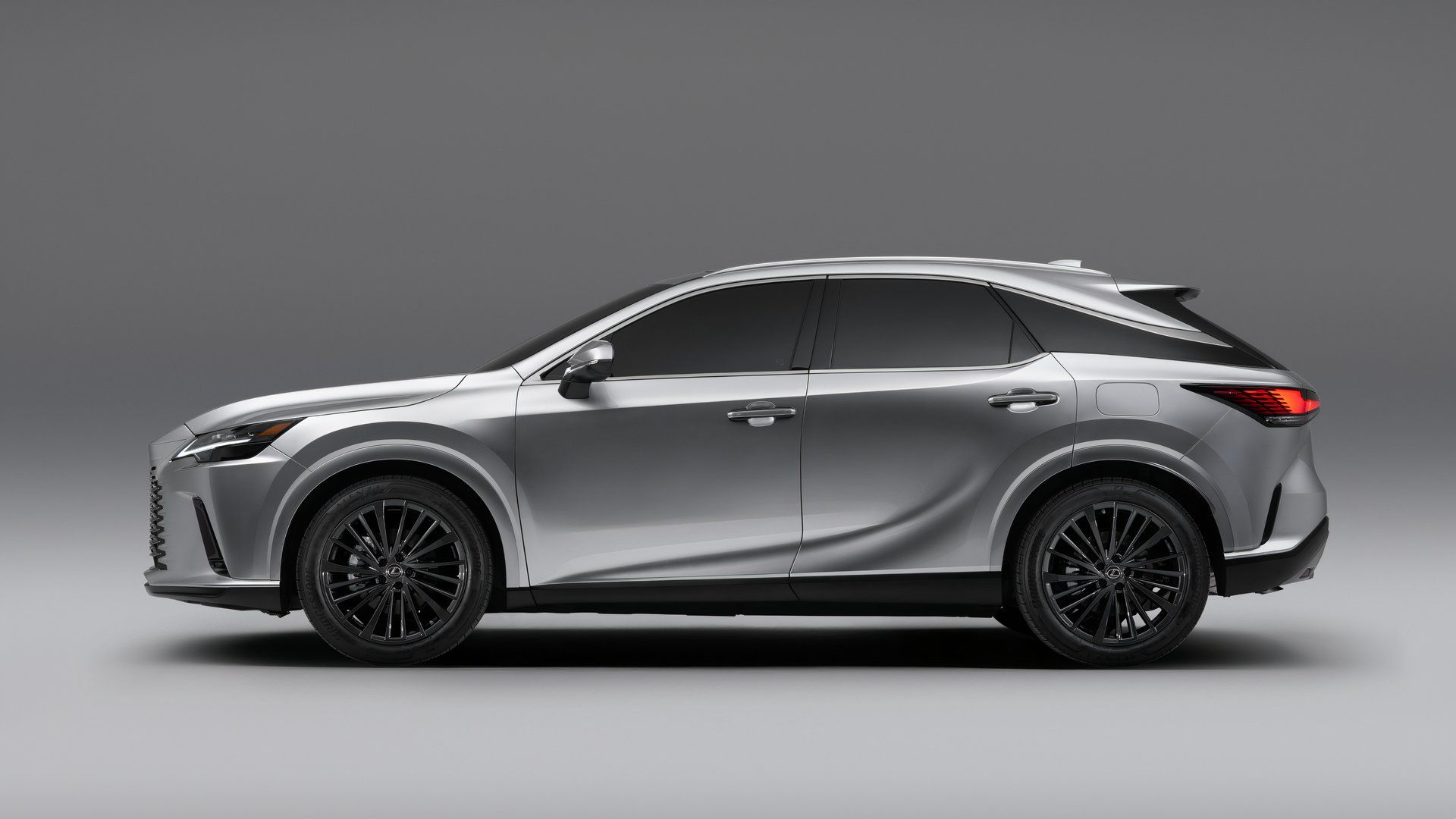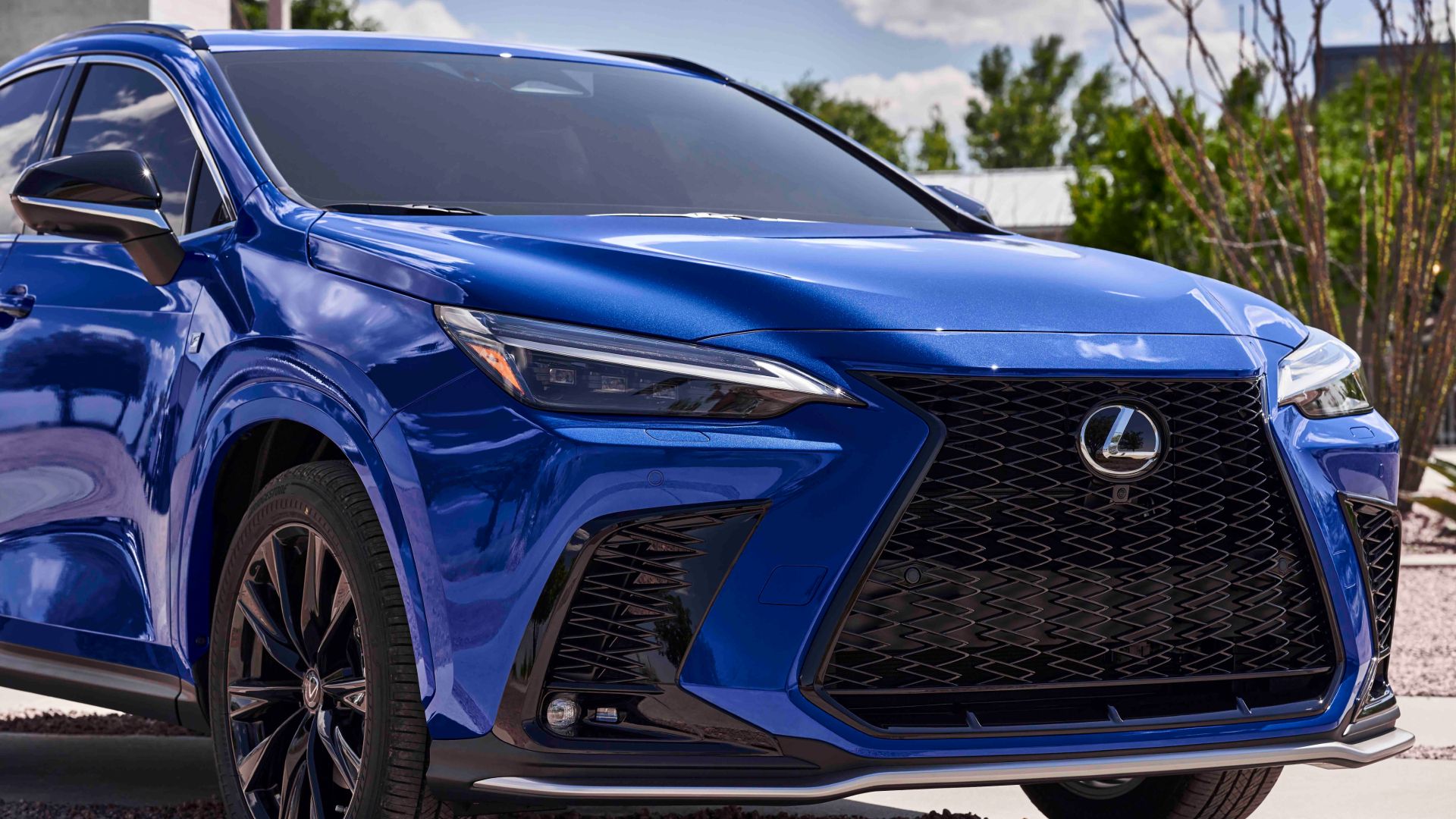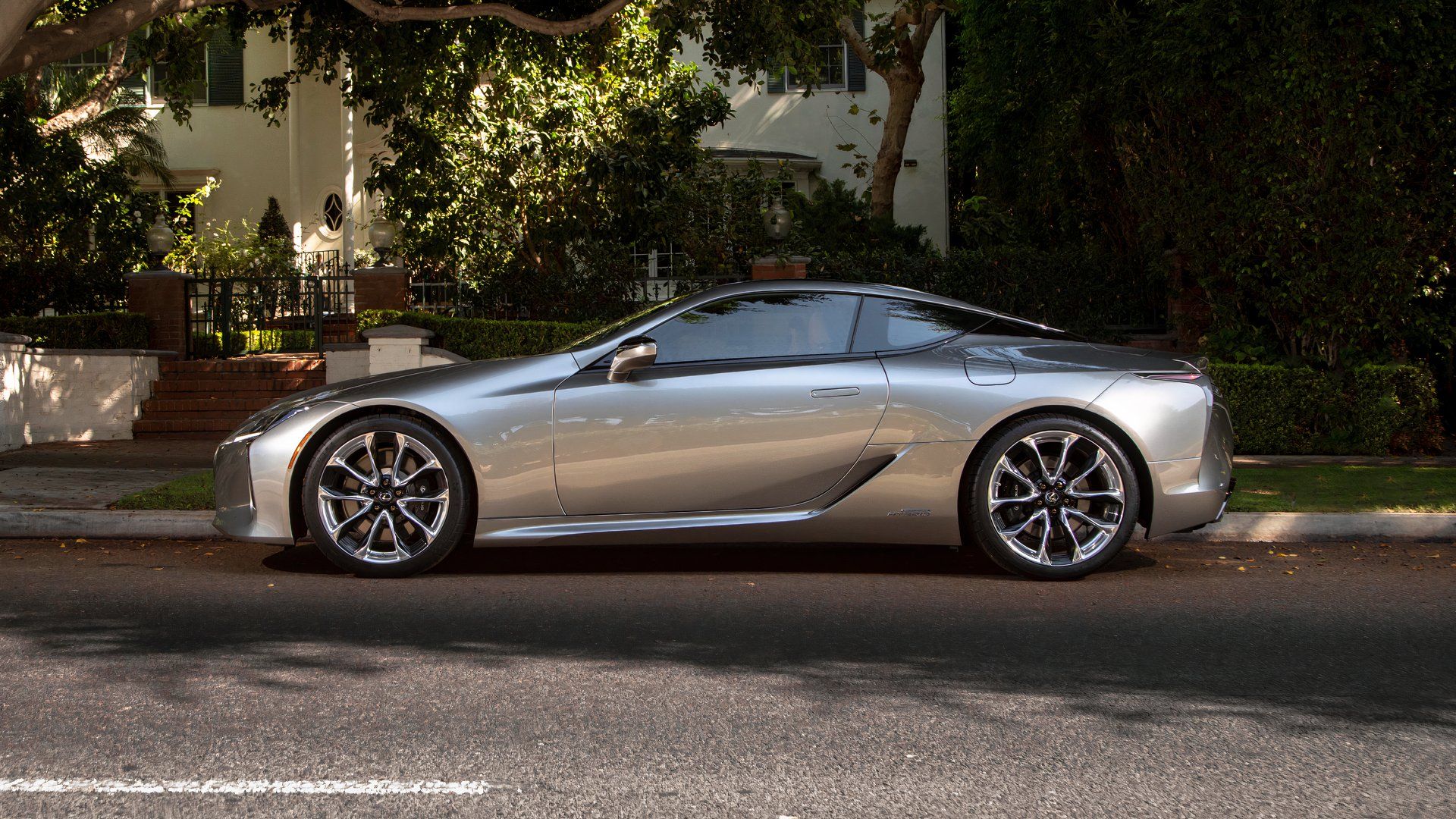
One thing that you have to keep in mind when purchasing a hybrid vehicle for long-term ownership is the fact that you’re going to have the battery pack replaced as time and use progresses. Thankfully, this isn’t as big an issue compared to an EV battery pack replacement, because hybrid batteries are substantially cheaper and easier to replace because of their smaller dimensions and capacities. They also tend to last a lot longer than EV batteries, because they don’t take full responsibility for providing the drivetrain with energy.
It’s quite hard to deny that the Toyota Group sits at the very top of the hybrid vehicle industry in the global market, partially thanks to its premium Lexus sub-brand. The Japanese manufacturer’s niche luxury department benefits from its parent brand’s extensive gasoline-electric hybrid technology, with a portfolio that
dates all the way back to 1997
.
Lexus is admittedly a small-time player in the American hybrid sales market, but it does its fair share in bulking up Toyota’s overall electrified sales figures. Thanks to this substantial investment in hybridization and electrification technology, the brand has trickled its development costs down into all of its hybrid offerings. It extends this to the used parts catalog, resulting in a battery replacement cost that is relatively easy to source and understand. Lexus also benefits from a very comprehensive warranty offering as a means to prove it offers the most dependable and reliable systems that you can currently get your hands on.
In order to give you the most up-to-date and accurate information possible, the data used to compile this article was sourced from Lexus’s websites and other authoritative sources.
Related
This Older Lexus Hybrid Is Still A Reliability Champion In 2025
This Lexus Hybrid SUV comes with a long track record in reliability and can give even the current crop of hybrids a run for their money.
Lexus’s Multiple Hybrid Battery Options And Replacement Costs
The Costs Can Go Up To $8,000
Lexus currently offers a plethora of HEV options, including
sedans, crossovers, and SUVs
. For the sake of consistency, we won’t include the mild-hybrid vehicles, which means we have to exclude the brand’s large SUV range. The Japanese manufacturer applies different battery capacities to all of its HEV’s specification sheets, ranging from 0.91 kWh to 1.8 kWh. Multiple Lexus dealer sites indicate that a replacement battery pack for its EVs will cost you anywhere between $2,000 and $8,000, depending on how severe the degradation is.
Lexus’s American Hybrid History
- Lexus introduced its first hybrid vehicle, the RX 400h, to the U.S. market in 2005.
- The RX 400h was the first luxury hybrid SUV available globally, setting a new standard for eco-friendly luxury vehicles.
- Lexus expanded its hybrid lineup in the U.S. with the GS 450h in 2007, offering a hybrid option in the luxury sedan segment.
- By 2010, Lexus offered hybrids across multiple segments, including the RX, GS, LS, and CT models.
- Lexus hybrids consistently prioritized performance and efficiency, integrating powerful electric motors with gasoline engines.
- As of 2024, Lexus continues to lead the luxury hybrid market in the U.S., with hybrids accounting for a significant portion of its overall sales.
Unfortunately, Lexus’s online parts catalog does not list any drivetrain or electrical components. If you want parts pricing for your specific model, we advise that you contact your dealer, who may request your VIN for verification. We were able to find a replacement HEV battery for the 2015 ES Hybrid, priced at $4,870. Obviously, this excludes the labor and installation costs, which is likely to add around $600 to $800 to the price, depending on the vehicle. This is still an expensive cost to consider. However, you need to bear in mind that an HEV’s battery pack is destined to last substantially longer than the ones you’d use in a PHEV or a dedicated EV.

Related
The Most Reliable Lexus Hybrid SUV You Can Buy Today
Japan pioneered the hybrid and now dominates the sector, and here’s an SUV from Lexus that is the most reliable one you can buy today.
What Happens When Your Lexus Hybrid Battery Expires
Several symptoms will start to present themselves when your Lexus’s hybrid battery
reaches the end of its lifespan
. This will negatively affect its performance and efficiency. The first thing you’re sure to notice is a noticeable and significant fuel economy drop, as the
hybrid system heavily relies on this part
to alleviate consumption from the ICE system. When this occurs, you’ll also be subject to inconsistent or reduced acceleration due to the diminished power output from the hybrid battery.
Modern hybrid systems contribute quite a bit of power to Lexus’s drivetrain, because the Atkinson-cycle engine is essentially a low-power unit. Another common symptom is increased frequency of the gasoline engine starting up, even at low speeds or idle, since the weakened battery can’t provide sufficient electric power on its own. Dashboard warning lights and messages will illuminate, signaling that diagnostic trouble codes have detected an issue within the hybrid battery system. Another issue you’ll need to be on the lookout for is the battery fan. This unit cools the battery pack when in use, so it will run louder or more often as the system works harder to manage the battery’s declining efficiency and overheating risk. A diminished battery will typically run at a higher temperature because of how it takes in more energy to maintain a charge level.
There have also been cases of a fluctuating state of charge on the dashboard display, where the battery level rapidly swings between full and low, reflecting a loss of the battery’s ability to hold a steady charge. These symptoms often appear gradually, but ignoring them can lead to more noticeable performance issues or even complete battery failure. When these signs become prominent, an inspection by a Lexus-certified technician can confirm if a battery replacement is necessary.
How Long Lexus’s Hybrid Battery Lasts
Lexus and other Toyota-based hybrid batteries typically last anywhere between
eight and 15 years or around 100,000 to 150,000 miles
under regular use before needing replacement. This depends entirely on usage and conditions, so it will differ depending on the model. Many Lexus hybrids achieve even greater longevity, especially when owners follow recommended maintenance and use the vehicle regularly. The battery works best when it isn’t subject to deep drains, but Lexus’s charging system ensures this never occurs while in use. Key factors like climate, driving habits, and consistent use influence battery lifespan, but much less than it would with an EV’s significantly larger pack.
For the sake of context, milder climates and smooth driving conditions contribute to extended battery life, while excessive heat or frequent aggressive driving can accelerate wear. Thankfully, Lexus’s design integrates the battery within the car’s cooling and management systems to keep temperatures moderate and efficiently extend its life. Lexus’s hybrid systems also include regenerative braking, thanks to its decision to incorporate a direct-drive unit rather than a conventional transmission. This helps preserve battery health by reducing reliance on the battery alone, particularly during acceleration or high-energy demands.
In real-world usage, some Toyota-based hybrids have shown robust battery performance,
exceeding 200,000 miles without significant degradation
. Regular hybrid system checks and adhering to Lexus’s maintenance schedule allow technicians to monitor battery health and address any issues early, which also boosts longevity. Many Lexus owners experience long-lasting hybrid batteries, sometimes beyond the initial warranty period, with minimal noticeable reduction in battery performance.
Should replacement be necessary, Lexus hybrid batteries are generally available for a few thousand dollars, with refurbished options often costing less. The long-term cost-effectiveness of Lexus hybrid batteries, coupled with the vehicle’s overall fuel efficiency, continues to appeal to owners seeking low maintenance and high reliability, even when considering potential battery replacement down the line.

Related
The Lexus Hybrid Crossover That Outsells The Prius Twins
As a sign of how much we love crossovers, even in more expensive segments, this Lexus massively outsells the Toyota Prius and Prius Prime… combined.
Lexus’s Class-Leading Hybrid Battery Warranty
Lexus issues all of its hybrid vehicles with a standardized warranty package as standard, which includes a 36-month or 36,000-mile basic warranty, 60-month or 60,000-mile powertrain warranty, and 60-month coverage for corrosion with unlimited miles. The brand also covers all hybrid components for 96 months or 100,000 miles, while the battery features a
class-leading coverage of 120 months or 150,000 miles
. You have the option of extending the basic warranty package up to 10 years or 125,000 miles via Lexus.
Lexus’s Standard Warranty Offering
|
Type |
Length |
|---|---|
|
Full Warranty |
36 Months/36,000 Miles |
|
Powertrain Warranty |
60 Months/60,000 Miles |
|
Maintenance Warranty |
24 Months/25,000 Miles |
|
Roadside Warranty |
24 Months/25,000 Miles |
|
Corrosion Warranty |
60 Months/Unlimited Miles |
|
Federal Emissions Performance |
24 Months/24,000 Miles |
|
Federal Emissions Defect |
36 Months/36,000 Miles |
|
Seat Belt And Airbags |
60 Months/60,000 Miles |
Lexus implemented this warranty offering in 2020, extending from the previous eight-year or 100,000-mile coverage. Toyota covers the hybrid battery for defects and manufacturing issues, ensuring repair or replacement at no cost within the warranty period. Additionally, the hybrid component warranty covers the electric motor and power control unit. Routine maintenance and wear-and-tear items, such as the 12-volt battery, fall outside this coverage. As we’ve mentioned, Lexus’s hybrid systems are typically very reliable and trustworthy, but the brand has had its fair share of recalls in this department over the years.






